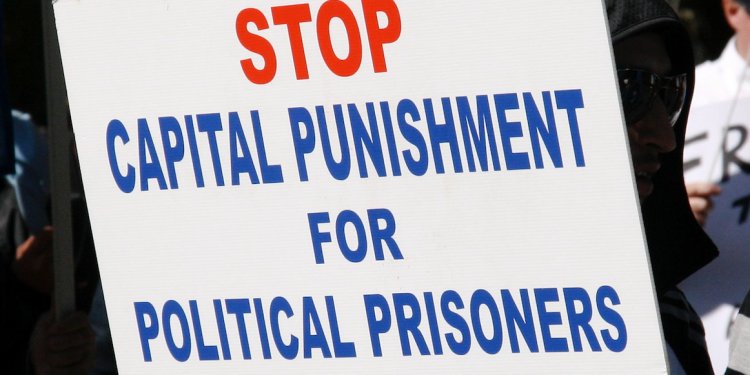Whilst the #DontExecute social media campaign has primarily been a show of Iranians’ strong solidarity as they unify in protest against the recent death penalty sentences of three demonstrators from the November protests, it has also been an opportunity to voice much more.
Worldwide, we are all scrabbling to navigate and predict what is in store for us with the continued concerns brought by the COVID-19 pandemic.
Yet, in Iran, not only are cases of COVID-19 on the rise but adding to the pressure are reports that the Riyal has dropped in value by 48% in 2020 — half of which occurred in the past month alone.

As unwelcome as it may be, Iranians are unfortunately well accustomed to the economic pressures brought largely by the long-standing sanctions. Since 2018 this pressure had been brought back into full force following the Trump administration’s backing out of the Joint Comprehensive Plan of Action (JCPOA) and the pursual of the “maximum pressure” campaign.
Even so, 2019 and 2020 have been particularly challenging for Iranians, with the November fuel protests, the assassination of General Qasem Soleimani, President Trump’s subsequent comments in relation to destroying important cultural sites in Iran, and Iran’s unintentional shooting down of the Ukrainian airliner in January.
Whilst it seems that pressures loom from all sides, the recent flurry of activity and protest via social media following confirmation of the death penalty sentences of Amir Hossein Moradi, Saeed Tamjidi, and Mohammad Rajab has given to Iranians a cause for unity and provided a movement to voice their other frustrations and opinions.
This is, of course, not the first instance in which Iranians have made use of social media platforms, such as Twitter and Instagram, in expressing their discontent. The social media movement my stealthy freedom began in 2014, and Twitter, in particular, was used to criticise the assassination of Qasem Soleimani in January this year, another movement which invoked much unity from Iranians living in Iran.
Other instances have also found traction online, such as the outcry in May after the arrests of parkour athlete Alireza Japalaghy and an unnamed woman with whom he had taken “romantic” pictures. Yet, none of these have generated so much traction as the #DontExecute (#اعدامنکنید) Twitter movement.
“I’ve never seen a hashtag with this level of participation from Iranians everywhere,”
— Amir Rashidi, Internet Security and Digital Rights Researcher
Reportedly the hashtag #DontExecute trended globally, and within a timespan of a morning to mid-afternoon, it had reached nearly 4.5 million tweets. Amir Rashidi, Internet Security and Digital Rights researcher, has been quoted by various media outlets, confirming the volume of participation.
“I’ve never seen a hashtag with this level of participation from Iranians everywhere,” Rashidi said. “Past issues, including political prisoners and Iran’s 2015 nuclear deal with world powers, had generated considerable social media engagement, but not like what was seen on Tuesday.”
Unlike previous causes for outcry, the sentencing of Amir Hossein Moradi, Saeed Tamjidi, and Mohammad Rajab has struck a chord with a much larger demographic in Iran, and at a time when the frustrations for all living in Iran are much higher than usual. Whereas other issues may have been divisive, or at the very least unimportant for some Iranians in Iran depending on their economic realities or personal values, the idea that these executions are happening as a “slapdown” of sorts for the November protests has likely frustrated many Iranians regardless of their background or usual stance toward the death penalty.
Related Articles: Why Serbia is Protesting | The Lebanese Revolution
It is not surprising that a larger demographic would be invested when we consider the fact that the November protests consisted of individuals from low-income backgrounds too, who perhaps would not typically concern themselves with some of the movements otherwise found on social media (or for example, the 2009 Green movement which consisted of a largely middle-class demographic).
This criticism, particularly when coming from the likes of Donald Trump, such as in the case of the November protests, is delegitimising for Iranians in Iran, who are trying to get their point across.
#DontExecute, in essence, has more support across the board, and whilst it is attracting international attention, the presence of the Iranian public’s own voice is taking up most of the space. Typically, stories of any kind of rebellion coming from Iran are leapt on by the mass media wherein so-termed “westernised” or “modern” Iranians are depicted and used by the media to point criticism at the government. This criticism, particularly when coming from the likes of Donald Trump, such as in the case of the November protests, is delegitimising for Iranians in Iran, who are trying to get their point across.
In the case of #DontExecute, however, the largest voice being heard is that of the Iranians themselves who are making their feelings known. More so, it has become a springboard for voicing other issues, amongst them the hashtag #ExonerateZara, which is now appearing in many tweets alongside the hashtag #DontExecute, asking for the release of the Kurdish activist Zahra Mohammadi.
The leader of the Peoples Mujahedin (MEK) Maryam Rejavi has also been on the receiving end of the displeasure of many Iranians, with the Farsi hashtag # مریم_رجوی_گوه_خورد following her support of #DontExecute, which many deemed as being hypocritical.
Iranians are mastering social media campaigns & creating Twitter storms/trends.
Yesterday it was against executions. Today it was against cult opposition group MEK (formerly on terrorist lists) & @IranIntl for airing its gathering.
Both hashtags #1 on Twitter in Iran.— Farnaz Fassihi (@farnazfassihi) July 18, 2020
As the President-elect of the National Council of Resistance of Iran (NCRI), she is currently attending the annual Free Iran Global Summit. Other hashtags include #NoMEKNoMullahs and #بهبهان_تنها_نیست (Bebahan is not alone), referring to the demonstrations that have recently been happening in Bebahan in the province of Khuzestan.
Whilst the executions are yet to be nullified, the announcement that they have been halted brings some hope. For the sake of the three men involved, but also as an acknowledgement that the public has spoken and been heard by their government. In any case, one can hope that more of us will speak up as loudly against the continued and crippling sanctions as we keep witnessing the ever-growing pressures that the Iranian people must endure.
Editor’s Note: The opinions expressed here by Impakter.com columnists are their own, not those of Impakter.com
In the Featured Photo: Banner at a rally for political prisoners. Photo Credit: Michael Lieu









